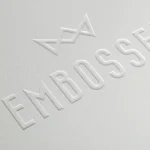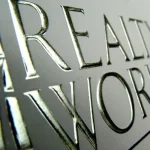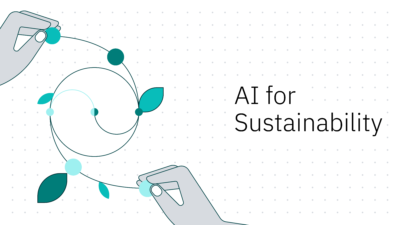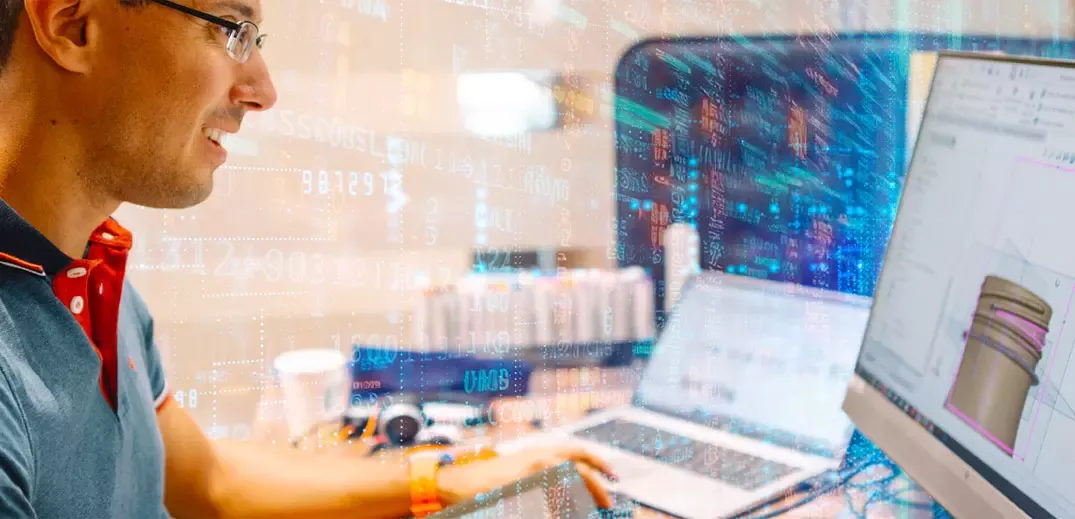AI in Packaging: Nestlé and IBM’s Sustainable Revolution
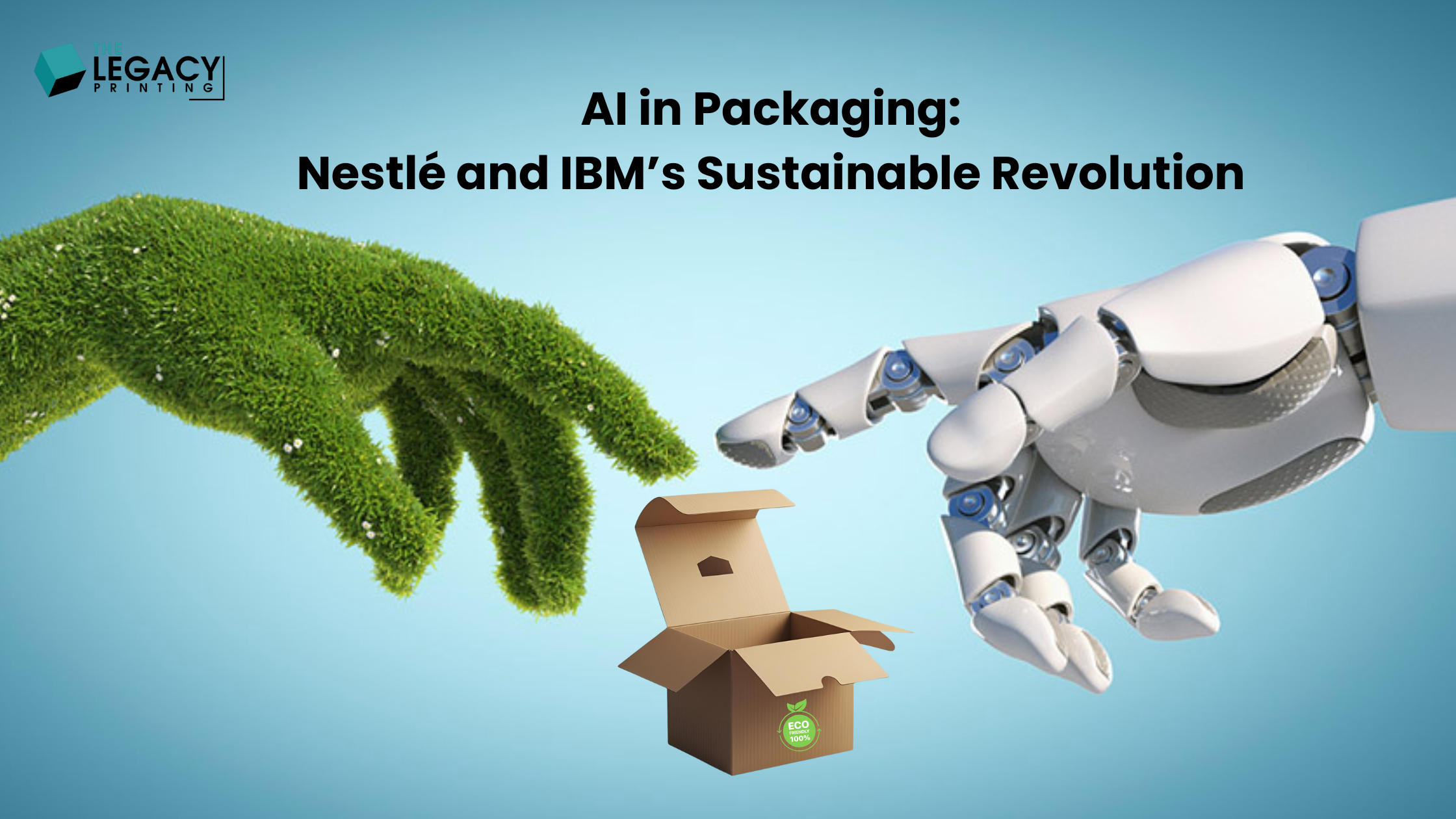
The integration of AI in packaging is reshaping the food and beverage industry, and Nestlé, a global leader, is driving this transformation through a pioneering partnership with IBM Research. By developing a generative AI tool, this collaboration is revolutionizing the discovery of sustainable, high-barrier packaging materials. AI in packaging not only accelerates innovation but also aligns with global demands for eco-friendly solutions, ensuring food safety, reducing waste, and minimizing environmental impact. This initiative positions Nestlé and IBM as trailblazers in sustainable packaging innovation.
The Growing Need for Sustainable Packaging
Packaging is vital for preserving food quality, extending shelf life, and preventing waste, but traditional materials like virgin plastics pose significant environmental challenges. Plastic pollution, limited recycling infrastructure, and high carbon emissions from production have spurred companies like Nestlé to seek alternatives. The goal is to create high-barrier packaging that protects products from moisture, oxygen, and temperature fluctuations while being recyclable, cost-effective, and safe for food contact.
Developing such materials is a complex, time-intensive process, often requiring years of research and testing. Nestlé has been a leader in reducing virgin plastic use, exploring mono-material and paper-based solutions that simplify recycling. However, achieving the perfect balance of functionality and sustainability demands innovative approaches, making AI in packaging a game-changing solution.
How AI in Packaging Fuels Innovation
Nestlé’s R&D division and IBM Research have harnessed AI in packaging to create a generative AI tool that accelerates material discovery. The process began with compiling a comprehensive knowledge base of material properties, drawing from public and proprietary sources. This database powered a chemical language model, an advanced AI system trained to decode molecular structures with precision.
Using IBM’s proprietary regression transformer technology, the team mapped correlations between molecular designs and physical properties like strength, flexibility, and barrier performance. This enabled the AI to propose novel materials tailored to Nestlé’s requirements—high-barrier, recyclable solutions that ensure food safety and reduce environmental impact. “AI in packaging is transforming how we approach material science,” said Stefan Palzer, Nestlé’s Chief Technology Officer. “This partnership with IBM unlocks sustainable solutions that were once unimaginable.”
Alessandro Curioni, Vice President of IBM Research for Europe & Africa, added, “Generative AI is revolutionizing scientific discovery. AI in packaging showcases how technology can drive sustainability and innovation across industries.”
Technical Deep Dive: The AI Process
The chemical language model operates like a linguist for molecules, interpreting their structures as a “language” of chemical bonds and properties. By training on a curated dataset, the model learns to predict how molecular configurations affect performance, such as impermeability to oxygen or recyclability. The regression transformer, a sophisticated AI algorithm, refines this process by identifying patterns between molecular features and desired outcomes, enabling the design of materials that meet specific criteria, like cost-effectiveness and eco-friendliness. This AI in packaging approach reduces trial-and-error, cutting development time from years to months.
Sustainability as the Driving Force
At its core, this initiative leverages AI in packaging to prioritize sustainability. The generative AI tool focuses on recyclable mono-materials and paper-based alternatives, reducing reliance on virgin plastics. These materials are engineered to meet rigorous standards: protecting sensitive products, ensuring food safety, and remaining viable for large-scale production. By automating material discovery, AI in packaging lowers the resource intensity of R&D, making sustainable innovation more accessible.
Nestlé’s broader sustainability goals include achieving net-zero emissions and ensuring all packaging is recyclable or reusable by 2025. The AI in packaging tool supports these ambitions, offering a scalable framework for eco-friendly solutions that maintain performance and affordability.
Nestlé’s Digital Transformation Journey
Harnessing AI for Holistic Innovation
Nestlé’s adoption of AI in packaging is a cornerstone of its broader digital transformation, which integrates advanced technologies to enhance efficiency, sustainability, and consumer satisfaction across its operations. By embedding AI-driven tools into product development, manufacturing, and consumer engagement, Nestlé is redefining the food and beverage industry. AI in packaging, as demonstrated by the IBM collaboration, exemplifies how technology can address complex challenges, from material discovery to operational optimization, aligning with Nestlé’s commitment to innovation and environmental responsibility.
Optimizing Recipes with AI
A key component of Nestlé’s digital transformation is its AI-powered recipe optimization tool, which balances ingredient choices with nutrition, cost, sustainability, and consumer preferences. For instance, the tool can suggest plant-based or low-carbon ingredients to reduce environmental impact while maintaining taste and nutritional value, as seen in products like plant-based milk alternatives or sustainable pet foods. This approach complements AI in packaging by ensuring that both product contents and their packaging align with Nestlé’s net-zero emissions and sustainability goals, creating a cohesive strategy that enhances product appeal and environmental impact.
Streamlining Manufacturing with Digital Twins
Nestlé leverages digital twins—virtual replicas of manufacturing equipment and production lines—to optimize its operations. These digital models simulate real-world processes, enabling Nestlé to test and refine production workflows without physical trials. For example, digital twins can optimize packaging lines to accommodate AI-designed materials, ensuring seamless integration of sustainable solutions like mono-materials. By reducing waste and energy use, digital twins enhance efficiency and support AI in packaging by ensuring that new materials are cost-effective and scalable for global production.
Personalizing Nutrition Through Data Science
Nestlé is pioneering personalized nutrition, using data science to deliver tailored dietary solutions for consumers and their pets. By analyzing data on dietary preferences, health goals, and lifestyle factors, AI algorithms recommend customized products, such as nutrient-specific meal kits or pet food formulations. This personalization extends to packaging, where AI in packaging could enable smart packaging solutions, such as QR codes that provide consumers with nutritional information or sustainability credentials. These innovations enhance consumer trust and engagement, aligning with Nestlé’s digital transformation objectives.
Enhancing Consumer Engagement and Transparency
Digital transformation at Nestlé also focuses on consumer engagement and transparency, with AI in packaging playing a pivotal role. AI-driven analytics track the environmental impact of packaging materials, providing data that Nestlé shares with eco-conscious consumers through digital platforms or smart packaging features. For example, a QR code on a coffee package could link to a report on its recyclable material’s lifecycle, building trust and loyalty. This transparency strengthens Nestlé’s brand as a sustainability leader, reinforcing the value of AI in packaging in consumer-facing strategies.
Driving Innovation Through the Deep Tech R&D Center
Nestlé’s new deep tech R&D center, highlighted in the broader digital transformation, is a catalyst for advancing AI in packaging and other technologies. The center focuses on AI, robotics, sensors, and virtual/mixed reality to streamline operations and develop innovative solutions. For instance, AI-driven insights from the center could optimize packaging designs, while robotics could automate production lines for sustainable materials. By fostering collaborations with tech partners and universities, the center ensures that AI in packaging evolves alongside other digital tools, positioning Nestlé as a leader in the food industry’s technological revolution.
Future-Proofing for Emerging Trends
Nestlé’s digital transformation is future-proofing its operations to meet emerging trends, such as demand for plant-based products, sustainable packaging, and personalized consumer experiences. By integrating AI in packaging with tools like recipe optimization, digital twins, and personalized nutrition, Nestlé creates a synergistic ecosystem that addresses these trends holistically. This approach ensures that the company can adapt to regulatory changes, consumer preferences, and market demands, maintaining its competitive edge in the global food and beverage industry.
A New Era of R&D
Pioneering Deep Tech in the Food Industry
Nestlé’s commitment to innovation is exemplified by its new deep tech R&D center, a groundbreaking facility and the first of its kind in the food and beverage industry. This state-of-the-art hub is designed to push the boundaries of technology, focusing on artificial intelligence, robotics, advanced sensors, virtual reality (VR), and augmented reality (AR). By integrating AI in packaging into its core research and operational strategies, the center ensures Nestlé remains at the forefront of sustainable innovation, addressing both consumer expectations and global environmental challenges.
Advancing AI in Packaging and Beyond
The deep tech R&D center will serve as a testing ground for a wide range of applications, with AI in packaging as a flagship initiative. Beyond packaging, the center will explore AI-driven analytics to optimize supply chain logistics, minimizing carbon footprints in distribution networks. Robotics and automation will streamline manufacturing processes, enhancing efficiency in packaging lines and reducing waste. Advanced sensors will enable real-time monitoring of product quality, ensuring compliance with stringent food safety standards during production and storage. These technologies will complement AI in packaging, creating a cohesive ecosystem of innovation that enhances Nestlé’s operational capabilities.
Fostering Collaborative Innovation
To amplify the impact of AI in packaging, Nestlé is adopting an open innovation model through the R&D center. The facility will foster collaborations with academic institutions, tech startups, and industry leaders like IBM to co-develop cutting-edge solutions. For example, partnerships with universities could lead to breakthroughs in biodegradable polymers, enhancing the sustainability of AI-designed packaging materials. Collaborations with tech startups might yield innovative sensor technologies for smart packaging, such as embedded sensors or QR codes that communicate product freshness or authenticity to consumers. These partnerships will accelerate the development of AI in packaging and related technologies, ensuring Nestlé remains a leader in the field.
Meeting Consumer-Driven Demands
The R&D center is also poised to address emerging consumer trends, such as the demand for transparent supply chains and personalized packaging solutions. By leveraging AI in packaging, the center could develop smart packaging that integrates sensors to provide real-time data on product quality or sustainability credentials, appealing to eco-conscious consumers. Virtual and augmented reality technologies will enable immersive R&D processes, allowing researchers to simulate packaging designs in virtual environments before physical prototyping. This approach reduces costs and speeds up innovation, ensuring that AI in packaging delivers solutions tailored to consumer needs.
Global Scalability and Adaptation
The global reach of the deep tech R&D center will enable Nestlé to adapt AI in packaging solutions to diverse regulatory and cultural contexts. For instance, the center could develop materials that comply with the European Union’s strict recycling mandates or create cost-effective packaging for markets in developing regions. By addressing regional variations in food safety standards and consumer preferences, the center ensures that AI in packaging solutions are scalable and impactful worldwide. This adaptability strengthens Nestlé’s position as a global leader in sustainable innovation, setting a benchmark for the industry.
Global Trends in Packaging and AI’s Role
The rise of AI in packaging aligns with global trends toward sustainability and technological integration. Governments and consumers are increasingly demanding eco-friendly packaging, with regulations like the EU’s Packaging and Packaging Waste Directive pushing for recyclable materials by 2030. Meanwhile, advancements in AI and material science are enabling companies to meet these standards faster. AI in packaging is part of a broader shift, with industries like cosmetics, pharmaceuticals, and retail adopting similar technologies to reduce environmental impact. Nestlé and IBM’s collaboration positions them as leaders in this global movement, setting a model for others to follow.
Long-Term Impact of AI in Packaging
The adoption of AI in packaging through the Nestlé-IBM collaboration could transform the industry over the next few decades. By accelerating the development of sustainable, high-barrier materials, AI reduces reliance on non-recyclable plastics, paving the way for widespread adoption of eco-friendly solutions across food, beverage, and non-food sectors like cosmetics and pharmaceuticals. For example, AI-designed materials could be used in pharmaceuticals to create biodegradable packaging or in cosmetics for recyclable containers.
In the long term, AI in packaging could democratize innovation. Smaller companies, often constrained by limited R&D budgets, could access AI-driven tools, fostering a competitive market for sustainable packaging. This could reshape global supply chains, prioritizing suppliers of recyclable materials and supporting circular economies by reducing plastic waste and carbon emissions. Estimates suggest that scaling sustainable packaging could cut global plastic waste by millions of tons annually, aligning with initiatives like the Ellen MacArthur Foundation’s New Plastics Economy.
Challenges include navigating diverse global regulations on food safety and recycling, which vary by region and could delay adoption. Scaling AI-designed materials requires significant investment in production infrastructure, and consumer acceptance of new formats, like paper-based packaging, depends on maintaining convenience and aesthetics. However, AI in packaging offers iterative solutions, with algorithms refining materials to meet these challenges while optimizing cost and functionality.
The collaboration’s success could inspire competitors to adopt AI in packaging, driving industry-wide innovation. It may also spark cross-industry partnerships, applying AI to sustainability challenges in areas like renewable energy, waste management, and sustainable agriculture.
Industry Implications
The Nestlé-IBM partnership underscores the transformative potential of AI in packaging. By applying generative AI to material science, the collaboration addresses critical issues like plastic waste and resource scarcity. Other companies may adopt similar AI-driven approaches, streamlining R&D and developing sustainable products.
The partnership also highlights the power of cross-industry collaboration. By combining Nestlé’s food industry expertise with IBM’s AI leadership, the initiative accelerates innovation, offering a model for sectors like pharmaceuticals and consumer goods where sustainability is paramount.
Conclusion
The Nestlé-IBM collaboration is a landmark in leveraging AI in packaging to create sustainable, high-barrier materials. By integrating generative AI and deep tech, this partnership delivers solutions that are environmentally responsible and commercially viable. With the potential to transform the packaging industry and align with global sustainability trends, AI in packaging sets a new standard for innovation. As Nestlé advances its digital transformation through initiatives like its deep tech R&D center and AI-driven tools, it paves the way for a future where technology and sustainability converge, inspiring industries worldwide.






